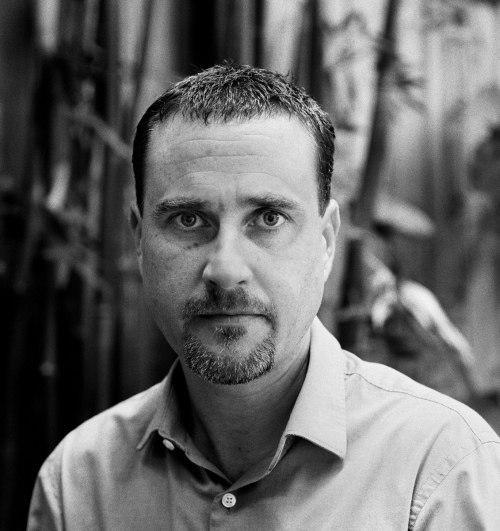Of God and Gangsters: A Brief Interview with Zachary Lazar
Zachary Lazar’s (Sway, Evening’s Empire: The Story of My Father’s Murder) latest novel, I Pity the Poor Immigrant, delves into the dangerous world of the real-life Jewish mafia, its crimes and it’s characters, most notably the gangster Meyer Lansky, a man who tried desperately to return to Israel even after his convictions. Through the eyes of journalist Hannah Groff, Lazar creates a story of loyalty, loss and the search for God and redemption. It’s a great read.
Lazar was great enough to answer a few of my questions about the novel and his inspirations for the story:
I’m curious about what brought you into the story of Lansky’s life. What was it about him that fascinated you?
My previous book, EVENING’S EMPIRE, was about my father’s murder. He was killed by Mafia hit men hired by a crooked businessman whom my father worked for. This businessman, it turned out, was a kind of latter-day Jewish gangster. This forced me to research organized crime, particularly its Jewish iteration, and this led me to the figure of Meyer Lansky. Lansky led a quiet life of concealment–everything was secret–so it was difficult to see a story in his biography. What finally resonated for me was Lansky’s complicated relationship to Israel, where he wanted to live. Israel rejected him, and it never stopped tormenting him.
I can’t help but compare this novel to “In Cold Blood” – another crime story with personal aspects intertwined. Sure, the “person” in the story may be fiction, but it still feels like the best reference point. How do you feel about that comparison?
My last three books have all been influenced by IN COLD BLOOD. Capote claims that everything in his book was reported, that there was no invention in the very detailed evocations of place and action, for example. I find this claim hard to believe, though I still think his book is a masterpiece. In any case, as far as my own work goes, I am careful to stay within the bounds of what we know about actual people from the historical record. I don’t make up the big events in their lives. I try to get inside their skin and imagine what it was like to live through those big events.
The stories about King David scattered throughout – I’m wondering about your relationship to these stories. Coming from a Christian background, these are all tales I’ve heard before, but never *fully* took into account how tragic they were. What made you connect them with Lansky? (I have an idea that David is sort of the ‘anti-Lansky’ – the guy you expect to be a hero/true follower of God doing these horrible things, whereas Lansky’s the guy known for his horrible things trying SO HARD to get closer to God/his homeland. But I could have read that wrong…)
No, you read it correctly. I went into the novel with a wild (and in a way quite stupid) hunch that there was a parallel to be drawn between Lansky and David, two tough Jews, one modern, one ancient. It took me a long time–more than a year–before I found a way to at least beginning making something interesting and, I hope, meaningful out of the juxtaposition.
In the most basic terms, what are you hoping people take away from this story?
Well, the true answer to that is that the answer is 250 pages long–the book itself. The shorter answer, though, is that although my novel is about Jews, it’s really about human beings in general: their insatiable dream to transcend the finite and often brutal circumstances of real life in favor of a spiritual world that is infinite, unattainable, and yet absolutely essential.
What’s your bookshelf look like? What kind of stuff are you reading so often it doesn’t even sit on the shelf? What stuff are you constantly drawing from?
The big ones are the novels of Joan Didion, Philip Roth, Don DeLillo, and the short stories of Deborah Eisenberg. I’m also always re-reading Flaubert, Tolstoy, and F. Scott Fitzgerald, the last of which was the writer I most wanted to be like before I knew any better.







